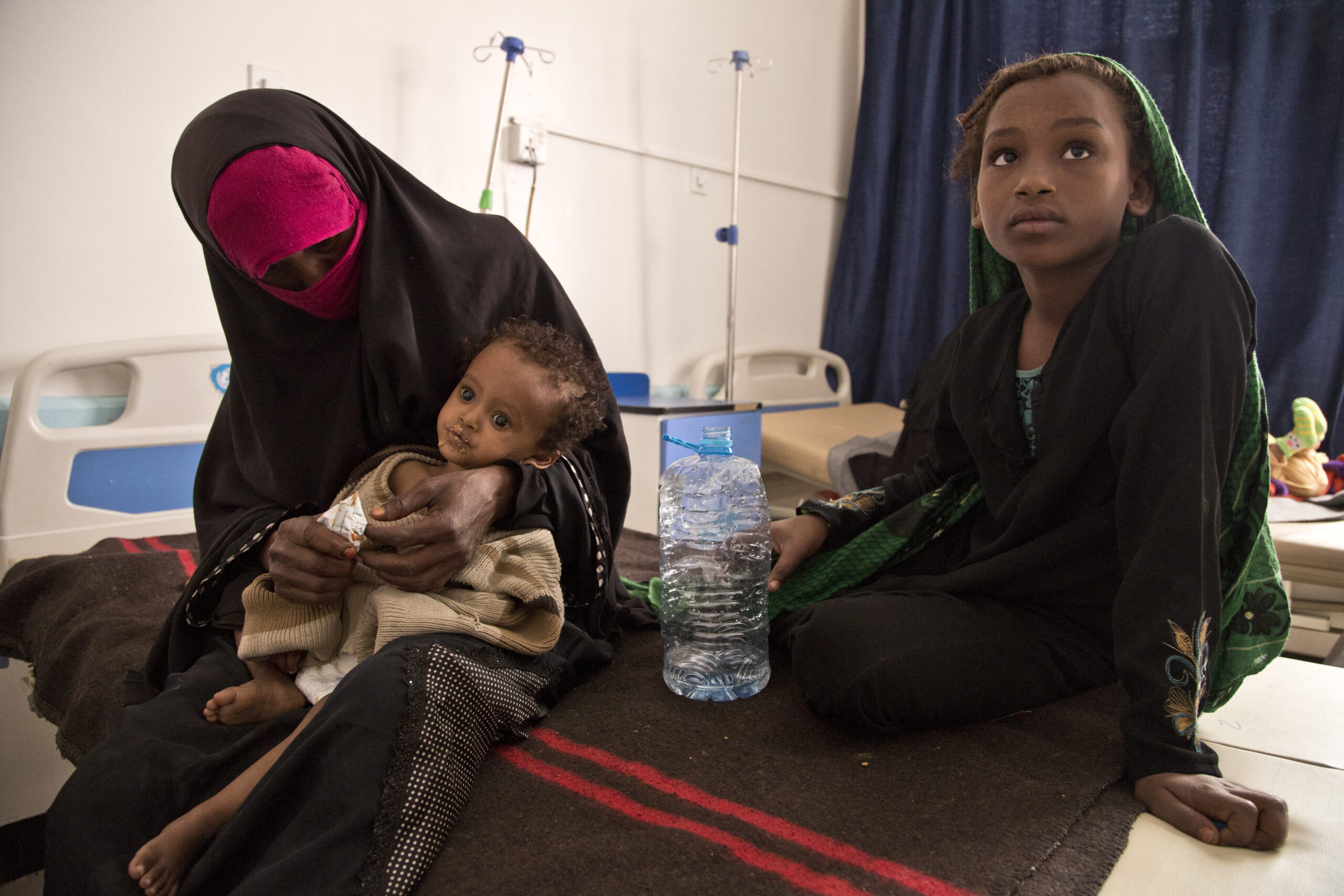كشف برنامج الأغذية العالمي التابع للأمم المتحدة، يوم امس الأحد، أن أسرًا في اليمن، تلجأ لأكل أوراق الشجر، بسبب الجوع.
وقال البرنامج الأممي في تغريدة على تويتر: “لا تظهر دوافع أزمة اليمن، كالصراع والتدهور الاقتصادي، أي بوادر للتراجع، نتيجة لذلك يتزايد الجوع في البلاد التي تشهد حربا مستمرة”.
وأضاف: “تلجأ الأسر في بعض المناطق الأكثر تضررًا في اليمن، مثل محافظة حجة (شمال غرب)، إلى إجراءات يائسة مثل أكل أوراق الشجر من أجل البقاء”.
وكان برنامج الأغذية العالمي في 22 ديسمبر الماضي، قال أنّه سيضطر إلى تقديم حصص غذائية مخفضة في اليمن، بسبب نقص التمويل.
وأوضح في بيان آنذاك أنه “مع تخفيض المساعدات الغذائية اعتبارًا من يناير، ستحصل الأسر بالكاد على نصف الحد الأدنى اليومي من الحصص الغذائية”.
ويشهد اليمن منذ نحو 7 سنوات حربا مستمرة بين القوات الموالية للحكومة المدعومة بتحالف عسكري عربي تقوده الجارة السعودية، والحوثيين المدعومين من إيران، المسيطرين على عدة محافظات بينها العاصمة صنعاء منذ سبتمبر/ أيلول 2014.
وقالت الأمم المتحدة، إنه بنهاية العام 2021، أسفرت عن مقتل 377 ألفا بشكل مباشر وغير مباشر.
المصدر: رويترز

